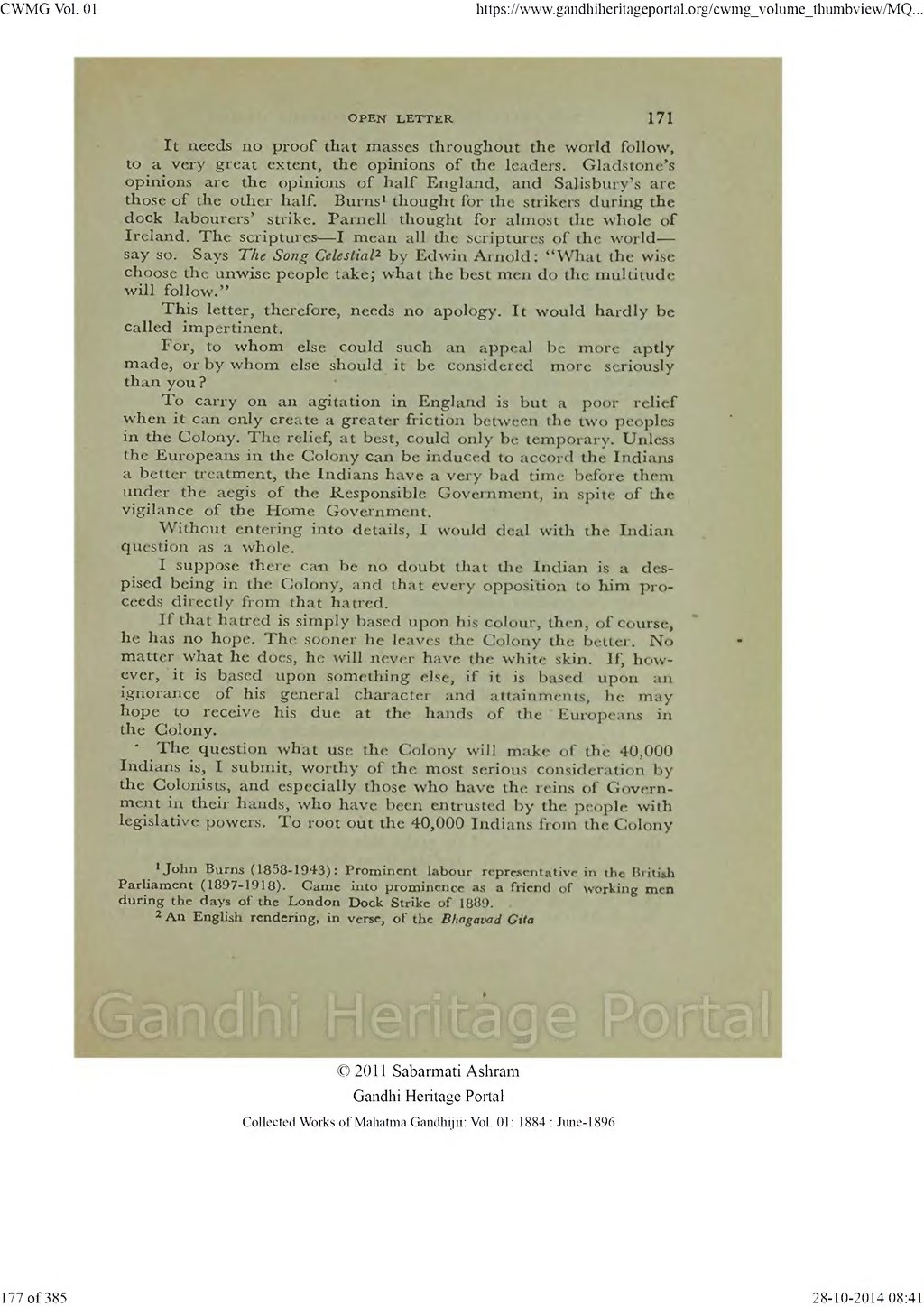It needs no proof that masses throughout the world follow, to a very great extent, the opinions of the leaders. Gladstone's opinions are the opinions of half England, and Salisbury's are those of the other half. Burns[1] thought for the strikers during the dock labourers' strike. Parnell thought for almost the whole of Ireland. The scriptures—I mean all the scriptures of the world—say so. Says The Song Celestial[2] by Edwin Arnold: "What the wise choose the unwise people take; what the best men do the multitude will follow."
This letter, therefore, needs no apology. It would hardly be called impertinent.
For, to whom else could such an appeal be more aptly made, or by whom else should it be considered more seriously than you?
To carry on an agitation in England is but a poor relief when it can only create a greater friction between the two peoples in the Colony. The relief, at best, could only be temporary. Unless the Europeans in the Colony can be induced to accord the Indians a better treatment, the Indians have a very bad time before them under the aegis of the Responsible Government, in spite of vigilance of the Home Government.
Without entering into details, I would deal with the Indian question as a whole.
I suppose there can be no doubt that the Indian is a despised being in the Colony, and that every opposition to him proceeds directly from that hatred.
If that hatred is simply based upon his colour, then, of course, he has no hope. The sooner he leaves the Colony the better. No matter what he does, he will never have the white skin. If, however, it is based upon something else, if it is based upon an ignorance of his general character and attainments, he may hope to receive his due at the hands of the Europeans in the Colony.
The question what use the Colony will make of the 40,000 Indians is, I submit, worthy of the most serious consideration by the Colonists, and especially those who have the reins of Government in their hands, who have been entrusted by the people with legislative powers. To root out the 40,000 Indians from the Colony
